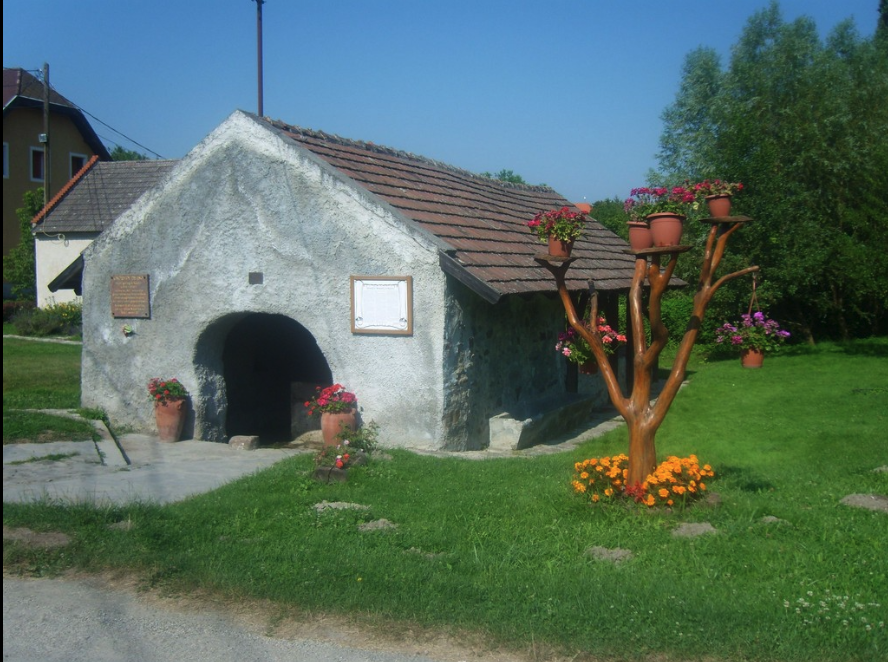It’s Monday, and I’m still running on the quiet rhythm of a perfect Sunday. Andrew and I spent the weekend in the countryside, specifically Badacsony, which delivered its usual mix of volcanic hills, lake views, and just the right amount of wine. Back at my desk now, I stumbled across something I hadn’t seen before: a village near Lake Balaton offering a fully renovated flat as part of a local housing scheme. It’s one of the most interesting Hungary countryside home deals I’ve come across, and that’s saying something. In a climate where restrictions and red tape usually take the spotlight, this felt like a rare and welcome exception.
I read the HirBalaton headline:
“Köveskál announced a land program for young people”
Cue the double-take.
Now, to be fair, we’re not talking about being handed the keys to a lakefront villa in Tihany with a wave and a wink. But the village of Köveskál, tucked away in the Balaton Highland (or Uplands), is offering something quietly radical: a fully renovated, 115-square-metre service flat available to a young couple who agrees to move there and actually live in it.
I’ll explain why this is both clever policy and surprisingly touching. But first, let’s talk about what’s happening and why it stopped me in my tracks.
What’s the Deal With These Hungary Countryside Home Deals?
The local government in Köveskál secured state funding to bring a long-abandoned municipal property back to life. Rather than selling it off or letting it rot, they’re turning it into a service flat, a model that prioritises community over speculation.
Köveskál’s project is part of a larger initiative to address housing shortages and attract skilled workers to the Balaton region. Last year, the Hungarian government allocated 4.5 billion forints to support the construction or renovation of municipal service apartments in the Balaton Priority Resort Area (BKÜ). A total of 180 municipalities were eligible to apply. Of those, 28 settlements moved forward in two funding rounds. Altogether, 105 service apartments will be built or restored, with 60 to 80 percent of the investment covered by the state.
Köveskál is one of them. The village will contribute 20 percent of the renovation cost for its flat, which had sat vacant for years in a state of disrepair. The 115-square-metre property is now being fully renovated, with construction expected to finish by October 2026.
Once complete, the flat will be offered to someone essential to the village – a doctor, kindergarten teacher, or municipal employee, along with their family.
A Broader Strategy to Fight Depopulation
This flat is just one part of Köveskál’s response to an ongoing challenge: depopulation. Over the past decade, the village has lost 50 residents, and today, there are hardly any children living there. Unlike towns facing pressure from new arrivals, Köveskál’s problem is the opposite—too few people, not too many.
So they launched a land program. It wasn’t a quick fix. It involved purchasing land, incorporating it into the inner village zone, and launching a formal plan. But the outcome is significant. As of last year, young couples can receive a 90 percent discount on village plots—as long as they commit to:
-
Having at least two children
-
Staying in the village for 15 years
-
Building a utility-connected home within four years
Of the 11 discounted plots, five already have owners. It’s a quiet but determined step to turn rural dreams into practical realities—and one that complements the service flat perfectly.
“It should cost thirty million. The entire plumbing system, cladding, flooring and the entire bathroom need to be renovated. The building will also receive exterior and roof insulation. So far, there is no delay in either construction or costs,” the mayor noted.
A Welcome Change of Tone
What really stood out to me is how this scheme contrasts with another policy that’s been making headlines: Hungary’s new Local Identity Protection Law.
If you’ve been following my blog, you’ll know that this law allows local councils to reject property sales if the buyer doesn’t align with the town’s “cultural identity.” It’s vague, controversial, and potentially discriminatory. While it claims to protect local character, it also risks blocking well-intentioned buyers, especially foreign ones, based on little more than paperwork technicalities.
The Köveskál scheme, on the other hand, does the opposite. It doesn’t exclude; it invites. The condition is simply that you show up and stay – something Hungary’s countryside desperately needs more of.
Both initiatives are trying to tackle the same issue: rural depopulation. But one leans toward restriction, while the other leans into inclusion, albeit locally focused. I know which one I’d rather see more of.
Would I Have Moved to Köveskál for a Flat?
Honestly? Back in 2017, Andrew and I might have seriously considered it. We’d just arrived in Hungary with our little dog Lucy, no shortage of enthusiasm, and a steep learning curve ahead of us. We ended up buying a fixer-upper not far from Köveskál. It’s become a much-loved part of our lives, but getting there took time, money, and more patience than we had some days.
We renovated it ourselves (read: Andrew did most of the work while I wrangled deliveries and sourced furniture). We added smart tech, terraces, and fire-safe heating – after the first one quite literally caught fire. Again, long story.
If something like this flat had been available back then, it would’ve made the whole leap into country life far less daunting. For young couples now, especially those with local ties or ambitions to live rurally, it’s exactly the kind of Hungary countryside home deal that could tip the balance from dreaming to doing.

The historic town well and washhouse in Köveskál. A reminder that practical community infrastructure isn’t a new idea.
Image source: koveskal.hu
Let’s Talk Numbers, Expectations and Nuance
This flat isn’t for sale. It’s not a path to property flipping or an investment opportunity. And it won’t come with the kind of anonymity you might find in a city block. But that’s the point.
Service flats are typically offered at symbolic or subsidised rent – low enough that they’re accessible, but structured to keep residents invested. In many Hungarian municipalities, that means tenants pay just enough to cover maintenance or utilities, sometimes as little as €50–100 a month.
This flat is being offered to one couple, but it’s part of a bigger conversation. Hungary doesn’t need empty village houses doubling as weekend rentals. It needs residents. The kind who register at the address, vote locally, send their kids to the school, shop at the veg stand. The kind who commit.
What This Means for You
If you’re dreaming of a slower life in Hungary – but not quite ready to buy, or wary of getting blocked by new legislation – then Hungary countryside home deals like this one offer a rare alternative. It’s not about real estate. It’s about real life.
This isn’t a loophole or a shortcut. It’s an invitation. And in today’s policy landscape, that feels surprisingly rare.
I’ll be keeping an eye out to see whether other villages follow Köveskál’s lead. And if they do, you can be sure I’ll be writing about it. This is exactly the kind of thing that deserves a spotlight – quiet, reasonable, and rooted in something deeper than market trends: community.
Want More Like This?
My ebook, HOW TO HUNGARY: Budapest and Beyond, covers property, bureaucracy, culture, and countryside life. If you’re thinking about making the move (or managing a home from abroad), it’s the guide I wish we’d had.
Grab your copy here and find out why so many readers say it’s the most useful resource they’ve found for navigating life in Hungary – whether you’re buying, renting, or just plain curious.

Anikó Woods is a Canadian-Hungarian writer, technology specialist, and digital strategist who swapped Toronto traffic for Hungarian bureaucracy. She’s the creator of HOW TO HUNGARY: Budapest & Beyond. Since moving to Hungary in 2017, she’s been deep in the paperwork trenches – fact-checking, interviewing experts, and helping others make sense of the madness. Her writing turns chaos into clarity, with a few laughs (and wine recommendations) along the way.

0 Comments